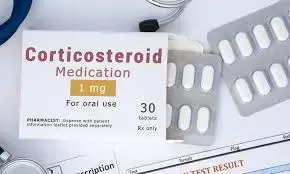- Home
- Medical news & Guidelines
- Anesthesiology
- Cardiology and CTVS
- Critical Care
- Dentistry
- Dermatology
- Diabetes and Endocrinology
- ENT
- Gastroenterology
- Medicine
- Nephrology
- Neurology
- Obstretics-Gynaecology
- Oncology
- Ophthalmology
- Orthopaedics
- Pediatrics-Neonatology
- Psychiatry
- Pulmonology
- Radiology
- Surgery
- Urology
- Laboratory Medicine
- Diet
- Nursing
- Paramedical
- Physiotherapy
- Health news
- Fact Check
- Bone Health Fact Check
- Brain Health Fact Check
- Cancer Related Fact Check
- Child Care Fact Check
- Dental and oral health fact check
- Diabetes and metabolic health fact check
- Diet and Nutrition Fact Check
- Eye and ENT Care Fact Check
- Fitness fact check
- Gut health fact check
- Heart health fact check
- Kidney health fact check
- Medical education fact check
- Men's health fact check
- Respiratory fact check
- Skin and hair care fact check
- Vaccine and Immunization fact check
- Women's health fact check
- AYUSH
- State News
- Andaman and Nicobar Islands
- Andhra Pradesh
- Arunachal Pradesh
- Assam
- Bihar
- Chandigarh
- Chattisgarh
- Dadra and Nagar Haveli
- Daman and Diu
- Delhi
- Goa
- Gujarat
- Haryana
- Himachal Pradesh
- Jammu & Kashmir
- Jharkhand
- Karnataka
- Kerala
- Ladakh
- Lakshadweep
- Madhya Pradesh
- Maharashtra
- Manipur
- Meghalaya
- Mizoram
- Nagaland
- Odisha
- Puducherry
- Punjab
- Rajasthan
- Sikkim
- Tamil Nadu
- Telangana
- Tripura
- Uttar Pradesh
- Uttrakhand
- West Bengal
- Medical Education
- Industry
Oral Steroids do not Increase Risk of COVID 19 in Patients of chronic rhinosinusitis

The role of corticosteroids in treating severe infections has been an enduring controversy. During the coronavirus disease 2019 (COVID-19) pandemic, rigorous data on the efficacy of corticosteroids have been limited. The pandemic has been a potent stimulus for clinical research addressing this controversy. In a recent study, researchers found that in patients with chronic rhinosinusitis (CRS), oral corticosteroids (OCS) does not increase the risk of COVID 19 infection. The research has been published in the journal Otolaryngology-Head and Neck Surgery on April 13, 2021.
CRS management frequently comprises conservative treatment, including a combination of topical and OCS. However, in the midst of the COVID-19 pandemic, clinicians may have been reluctant to prescribe OCSs out of possible concern for an increased risk of contracting COVID-19 or developing more severe COVID-19 symptoms.
Therefore, Dr Lauren E. Miller and Dr Neil Bhattacharyya conducted a study to explore the association between the use of OCSs and the development of COVID-19 in patients with CRS.
It was a historical cohort study of 1707 patients with chronic rhinosinusitis. The researchers stratified the patient subset into two groups: those who received OCSs within 28 days before their COVID-19 testing and those who did not and recorded the number of days between the initial OCS prescription and the COVID-19 test.
Key findings of the study were:
Upon analysis, the researchers found no statistically significant difference in the rates of patients with a positive diagnosis of COVID-19 who underwent an OCS treatment regimen compared to those who did not, both within 28 days and 14 days prior to the COVID-19 test.
The authors concluded, "Given OCSs are often a major component of medical management of CRS, this study proves helpful in counseling patients on risks of steroid use in CRS treatment during the COVID-19 pandemic."
For further information:
Medical Dialogues Bureau consists of a team of passionate medical/scientific writers, led by doctors and healthcare researchers. Our team efforts to bring you updated and timely news about the important happenings of the medical and healthcare sector. Our editorial team can be reached at editorial@medicaldialogues.in.
Dr Kamal Kant Kohli-MBBS, DTCD- a chest specialist with more than 30 years of practice and a flair for writing clinical articles, Dr Kamal Kant Kohli joined Medical Dialogues as a Chief Editor of Medical News. Besides writing articles, as an editor, he proofreads and verifies all the medical content published on Medical Dialogues including those coming from journals, studies,medical conferences,guidelines etc. Email: drkohli@medicaldialogues.in. Contact no. 011-43720751


